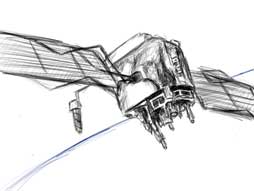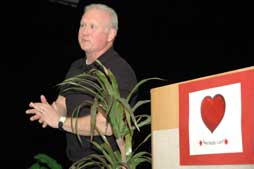By Julissa Treviño/south news editor

Meg Witmer, instructor of hospitality management on SE Campus, provides advice on travel planning for those thinking ahead to spring break or summer trips.
Q. How far in advance should someone start planning a trip or vacation?
How far in advance you should plan your trip or vacation really depends on the purpose and type of trip, the destination, the time of year, your budget and the length of the trip. Traveling to foreign destinations, for example, requires making sure you are aware of recent travel requirements and have the appropriate travel documents—a passport, and perhaps a visa, birth certificate or even a marriage certificate if it is a honeymoon trip, as well as record of certain immunizations, potential entry/exit fees and foreign currency.
A quick weekend-get-away close to home or even within the country will likely require much less planning and may be completed very quickly using reliable Internet resources.
Q. What are the advantages of planning far ahead?
Planning ahead and researching destinations allows you to make the most of your get-away by taking advantage of airfare and lodging deals, learning about the culture, religion and customs, perhaps learning a bit of the language, as well as scheduling each day of your trip to maximize your time and experience. When traveling, it is helpful to remember the goal and purpose of your trip. For instance, you may want to make sure you are able to visit all the desired sights and attractions, as well as gain a good feel of the destination, the local people and their culture.
Q. How can someone make sure they’re getting a fair deal on their trip?
Research—research—research! Ask travel professionals their advice and do your homework. The Internet has made this much easier than ever before. Learn about peak travel times of the year. Seasons, days of the week and even certain special events influence pricing. Consider the recent Super Bowl or racing events at Texas Motor Speedway—these events certainly influenced hotel rates and airfares. Pricing is influenced by supply and demand—you remember that from economics, no doubt.
Shop different Web sites and refer to helpful sites such as Rick Steves’ Web site: www.ricksteves.com
Q. When is the best time to travel and why?
Again, this varies by departure city, destination, season, time of the week/month. Research your destination to determine high/low travel times. It goes without saying that if you choose to travel during peak season, you will likely pay a premium, though advance planning can often mitigate these costs. Also when visiting many destinations, it is important to schedule each day in such a way that allows you to visit popular sites early in the day in anticipation of crowds. Depending on your destination, you will also need to consider the number of other tourists, transportation, hours of operation for attractions and museums, etc., as well as special events. The sheer number of people may keep you from seeing all the sights you had planned, or at the very least detract from the experience.
Q. What are some things everyone should know before traveling?
Much like “location, location, location” is the mantra in real estate, “research, research, research” will carry you a long way toward an enjoyable travel experience. Familiarize yourself with travel restrictions—the airlines provide updated travel information on their Web sites, as do such travel sites as Travelocity. Also, read the fine print! Travel contracts can be tricky and easily misunderstood, so read them carefully and be aware of what is included in your package. “Know before you go,” as the saying goes.
When traveling, it is also necessary to make legal and medical arrangements ahead of time. We don’t want to think about it; however emergencies, illness, and even death happen when we are far from home, so discuss these topics with family and/or close friends. Keep on hand your emergency contact and medical information. If you have allergies or require certain medications, make sure you have that information with you as well. Planning ahead just makes good sense.
Q. What are the necessities everyone should pack on their trip?
This is a broad question and may be best answered by referring you to a travel resource I have often recommended: Rick Steves. On his Web site, Steves, a well-known guru of European travel, offers many helpful travel hints covering packing tips, safety, health, eating, sleeping, money matters, communication and group travel. I encourage you to visit his site and take advantage of the information he presents.

























